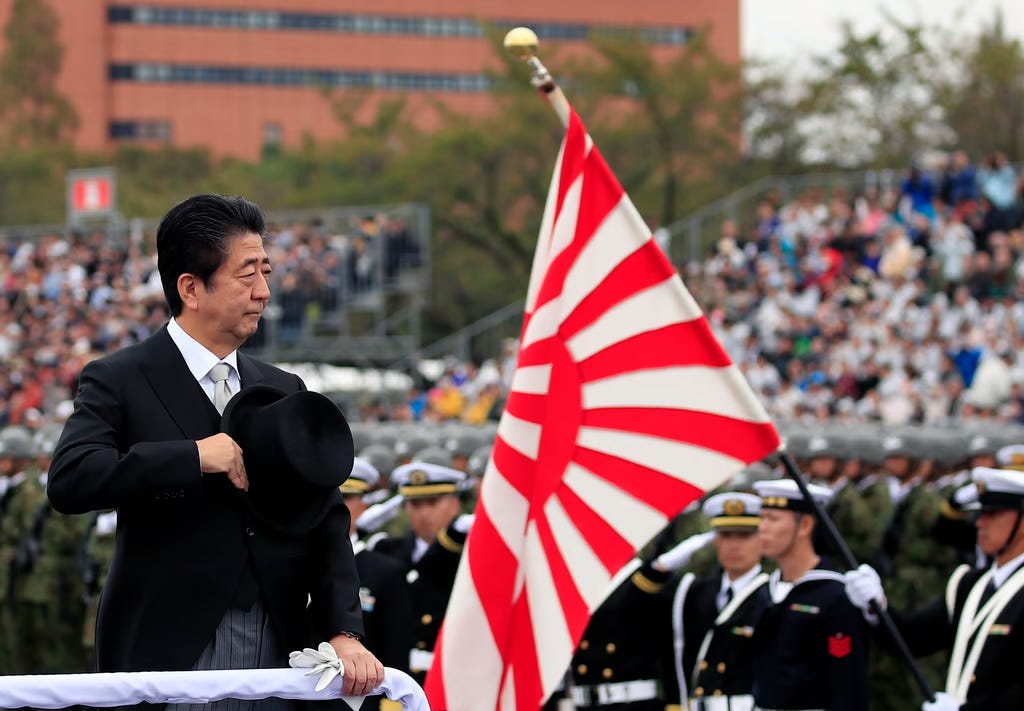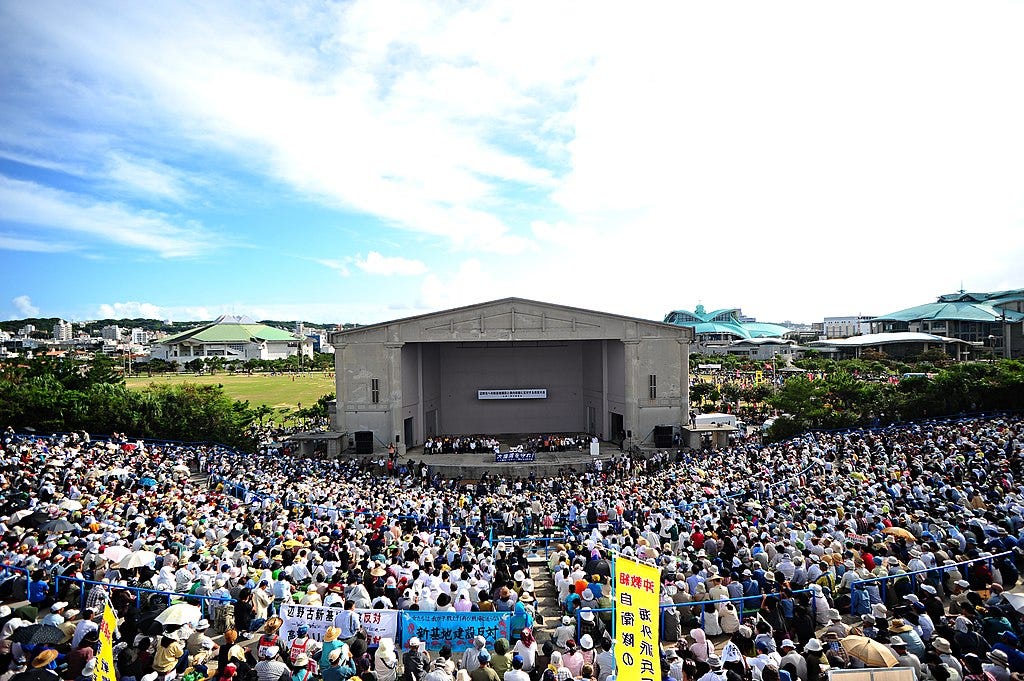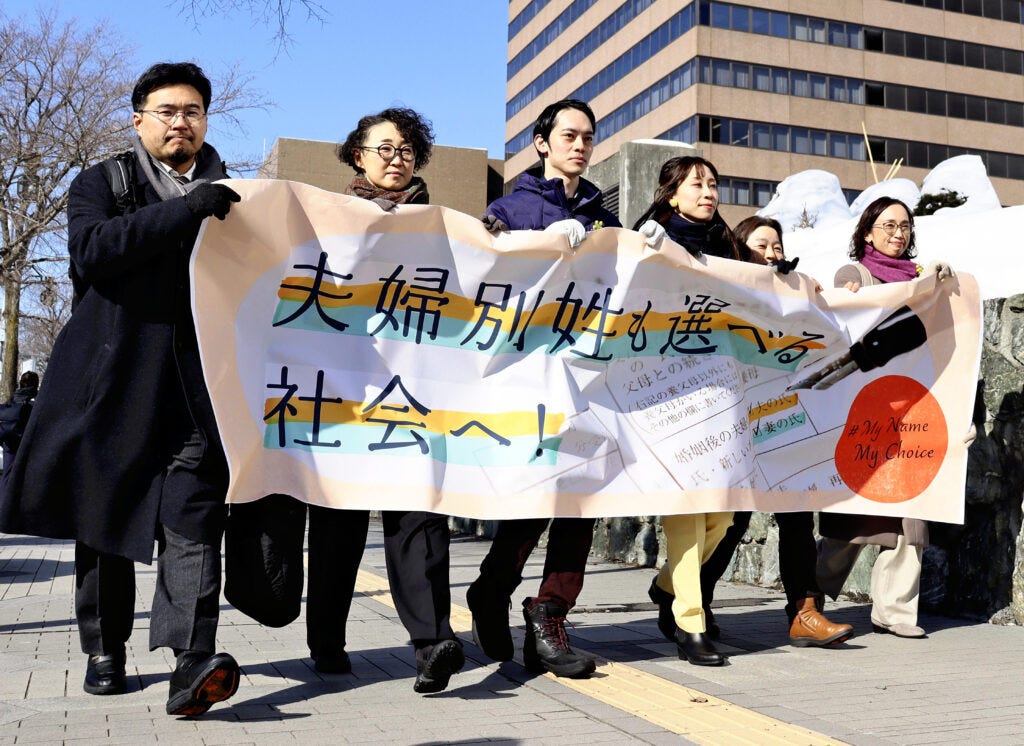What are Japan's political issues?
Japan’s political landscape is shaped by a range of pressing and debated issues that significantly influence public discourse and policy-making. Highlighting these key topics is essential for understanding the broader political context of our politics.
Constitutional revision

The remilitarization issue in Japan revolves around debates on expanding the role and capabilities of the Japan Self-Defense Forces (JSDF), which is the current armed forces of Japan. Key topic include the formal recognition of the JSDF in the constitution, as their absence from it raises questions about their legal status and legitimacy.
Article 9 of the Japanese constitution, which states, "Aspiring sincerely to an international peace based on justice and order, the Japanese people forever renounce war as a sovereign right of the nation," is also a major point of debate. Some call for its revision or even removal, arguing that it would enhance national security, while opponents fear it could lead to military escalation and a shift away from Japan’s post-war commitment to pacifism.
Aside from remilitarization, other proposals for constitutional revision include granting the government the power to extend the terms of Diet members during national emergencies, such as wars or natural disasters, allowing the ruling party to maintain control without regular elections in times of crisis. Some pro-revision politicians also seeks to revise Article 12 to emphasize "public order" over individual freedoms, which could limit civil liberties like free speech, assembly, and protest. Additionally, they propose allowing the government to restrict public demonstrations deemed harmful to public order and removing the guarantee of human rights in Article 97, which would shift the constitution’s focus away from the individual.
U.S. military presence
The presence of American troops have become a contentious topic in Japan, particularly in Okinawa. Many Japanese citizens and activists argue that it compromises Japan’s independence and could draw the country into international conflicts. The most contentious points include incidents of crime and accidents involving U.S. service members, the environmental impact of military bases, and the long-standing resentment over the 1995 Okinawa rape incident where three U.S. servicemen from the Navy and Marines serving at Camp Hansen kidnapped, beat, and raped a 12-year-old Okinawan girl.
The relocation of Marine Corps Air Station Futenma, located in the urban area of Ginowan City in Okinawa Prefecture, has become a focal point of controversy due to safety and environmental concerns. The base's current location in a densely populated area has raised significant opposition from Okinawan residents and local authorities. The Japanese government proposed moving the base to Henoko Bay in Nago, but this plan has been met with resistance, as many Okinawans want the base moved off the island entirely. Legal battles have followed, with Okinawa's governor blocking the landfill work required for the new base, a decision later overturned by Japan's Supreme Court.
Optional surnames for married couples and Same-sex marriage
In Japan, one of the major ongoing social issues revolves around the legal requirement for married couples to share a single surname. Under the current law, which has been in place since 1898, married couples must adopt either the husband's or the wife's surname, but in practice, over 95% of couples take the husband’s surname. This law has drawn criticism, particularly from women, as it is seen as reinforcing traditional gender roles and diminishing individual identity. Many argue that the requirement for one shared surname pressures women to give up their family name and can lead to administrative burdens or loss of professional identity.
The issue has sparked debates over personal rights and gender equality, with advocates pushing for legal reforms to allow for dual surnames, where both spouses can retain their own surnames after marriage. Proponents of change argue that the law is outdated and doesn’t reflect modern values, where both partners should be treated equally.
The issue of same-sex marriage has been a contentious and evolving legal matter. While same-sex couples face a lack of legal marriage recognition, recent court rulings have made significant strides toward equality. For instance, in 2024, both the Tokyo District Court and Sapporo High Court ruled that Japan’s prohibition on same-sex marriage violates the constitutional principles of equality and individual dignity, making the government’s stance increasingly difficult to justify. Despite these rulings, Japan’s legal system has yet to fully legalize same-sex marriage. Local governments, like Tokyo, offer limited partnership certificates, but these do not provide the same legal rights as marriage, such as inheritance or spousal visas.
Immigration

Immigration has long been a sensitive issue in Japan, largely due to its homogenous society and long-standing cultural emphasis on preserving its national identity. Despite having an aging population and labor shortages in various sectors, Japan has historically been reluctant to open its doors to large numbers of immigrants. Public sentiment often leans against immigration, with concerns over cultural assimilation and the economic strain posed by newcomers. This reluctance is seen in the country's relatively low levels of refugees and migrant workers compared to other developed nations. Although there has been some movement towards accommodating more foreign workers, especially in sectors like caregiving, construction, and agriculture, full-scale immigration remains a divisive topic.
The issue became more pressing with the revision of Japan’s Immigration Control and Refugee Recognition Act, which aimed to address labor shortages by making it easier for skilled foreign workers to come to Japan. However, the law also introduced stricter measures, such as limitations on asylum applications and the removal of detainees without due process. A particularly controversial part of the revision is the introduction of new rules for asylum seekers, limiting their ability to apply for protection multiple times. These policies are seen as attempts to curb "abuses" of the asylum system, where applicants make repeated applications to delay deportation, but critics argue the changes undermine the rights of vulnerable individuals. While the law introduced provisions for "supplementary protection" for those at risk of persecution, human rights advocates assert that it still falls short of providing adequate safeguards for refugees.





